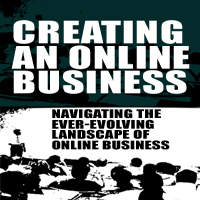



In a world where economic uncertainties can strike at any time, individuals and businesses are increasingly seeking ways to build a recession-proof income. Affiliate marketing has emerged as a robust and adaptable strategy that not only thrives during economic downturns but can also help individuals create a reliable and recession-resistant income stream. Let's explore how affiliate marketing can be the key to financial stability in uncertain times.
Performance-Based Model: One of the fundamental strengths of affiliate marketing is its performance-based nature. Businesses only pay commissions to marketers when they generate a sale, lead, or desired action. This cost-effectiveness is especially appealing during recessions when businesses are cautious about their spending.
Low Overheads: Affiliate marketing requires minimal overhead costs. Marketers typically operate from their own digital platforms, whether it's a blog, website, or social media account. They don't need to invest in physical infrastructure or hire employees, making it an ideal choice for those looking to keep their expenses low in an economic downturn.
Diversification Of Income: Affiliate marketers have the flexibility to promote products and services in various niches and industries. This diversification of income sources is a crucial element of building a recession-resistant income. If one niche experiences a downturn, revenue from other niches can help offset losses.
Remote Work Compatibility: Affiliate marketing is perfectly suited to remote work. Marketers can operate from anywhere with an internet connection, providing a level of independence that can be valuable during economic instability. Whether you're working from home, a co-working space, or a remote destination, you can continue your affiliate marketing efforts.
Scalability: Affiliate marketing can be as small or as large as you want it to be. You can start with a part-time endeavor and gradually scale it into a full-time income source. This scalability enables individuals to respond to changes in their financial circumstances or market conditions.
Consumer Trust And Authenticity: Trust is essential in affiliate marketing. Successful marketers build trust and credibility with their audience, often over an extended period. This trust ensures that the recommendations made by affiliate marketers hold weight, even during economic uncertainty when consumers are more cautious with their spending.
Data-Driven Decision Making: Data and analytics are integral to affiliate marketing. Marketers use these insights to optimize their strategies, refine their targeting, and maximize their conversions. This data-driven approach is invaluable during economic recessions, where efficiency and cost-effectiveness are paramount.
Affiliate marketing offers a unique opportunity to build a recession-proof income. Its performance-based model, low overhead costs, and adaptability make it an ideal choice for individuals and businesses looking to weather economic downturns. The ability to diversify income sources, work remotely, and build trust with consumers further solidify affiliate marketing as a powerful tool for creating financial stability in an unpredictable economic landscape. As the world continues to face economic uncertainties, affiliate marketing stands as a resilient and reliable income-generating strategy.
The Power Of Flexible Work Models
 Improved Work-Life Balance: Flexible work models enable employees to better balance their personal and professional lives. Remote work, for example, eliminates commuting time and allows for greater flexibility in managing family responsibilities.
Improved Work-Life Balance: Flexible work models enable employees to better balance their personal and professional lives. Remote work, for example, eliminates commuting time and allows for greater flexibility in managing family responsibilities.
Increased Productivity: Many employees find that they are more productive when they have the freedom to work during their peak hours or in a location that suits them. This can lead to enhanced job satisfaction and performance.
Access To A Wider Talent Pool: Employers embracing flexible work models can tap into a broader pool of talent. They are not limited to hiring only local candidates but can access skilled individuals from around the world.
Cost Savings: For both employees and employers, flexible work models can lead to cost savings. Reduced commuting costs, office space expenses, and increased job satisfaction can positively impact the bottom line.
Adaptability To Changing Circumstances: Flexible work models provide resilience in the face of unforeseen events, such as the COVID-19 pandemic. Remote work and flexible schedules allow businesses to adapt quickly to unexpected disruptions.
Sustainability: Reduced commuting and office space usage can have positive environmental impacts, making flexible work models a sustainable choice for both individuals and companies.
 Information At Our Fingertips
Information At Our Fingertips
Access to information has never been easier. Mobile devices grant us instant access to the vast reservoir of human knowledge available on the internet. Whether you need to check the news, research a topic, or settle a debate, your smartphone or tablet is your gateway to the world's information. This has transformed the way we learn and stay informed.
Productivity On The Go
Smartphones and tablets are not just for personal use; they are powerful tools for work and productivity. With a myriad of productivity apps, email access, and document editing capabilities, these devices have untethered us from traditional office settings. Remote work, meetings, and collaboration are now possible from virtually anywhere, thanks to the portability and computing power of mobile devices.
Retail And E-Commerce
Mobile devices have disrupted the world of commerce. Online shopping, mobile payment systems, and e-commerce apps have transformed the way we shop. Whether you're ordering groceries, clothes, or electronics, mobile devices have made it easy to browse, compare prices, and make purchases on the go. They have not only changed the way we shop but also the way businesses operate and market their products.
Unveiling A Path To Earnings And Collaboration
 Why Affiliate Marketing Matters
Why Affiliate Marketing Matters
Low Entry Barriers: One of the most appealing aspects of affiliate marketing is its accessibility. You don't need a substantial upfront investment, and it's open to individuals of all experience levels. Whether you're a seasoned marketer or a complete novice, you can venture into affiliate marketing.
Flexibility: Affiliates have the freedom to choose the products or services they want to promote. This flexibility allows you to align your marketing efforts with your interests, ensuring a genuine and passionate approach to promoting products.
Passive Income Potential: Affiliate marketing offers the promise of passive income. Once you've set up your affiliate campaigns and your marketing materials are live, you can continue to earn commissions passively. In other words, you can make money even when you're not actively working.
No Inventory Or Customer Support: Unlike traditional businesses, affiliates don't need to worry about inventory management or customer support.
The Impact Of Technological Advancements
 Biotechnology And Healthcare: Advances in biotechnology have led to groundbreaking discoveries in gene editing, regenerative medicine, and precision diagnostics. These technologies are poised to revolutionize healthcare, with the potential to cure genetic diseases, develop personalized treatment plans, and extend human life.
Biotechnology And Healthcare: Advances in biotechnology have led to groundbreaking discoveries in gene editing, regenerative medicine, and precision diagnostics. These technologies are poised to revolutionize healthcare, with the potential to cure genetic diseases, develop personalized treatment plans, and extend human life.
Space Exploration: The private sector has become a driving force in space exploration, with companies like SpaceX and Blue Origin pushing the boundaries of what's possible. This has the potential to reduce the cost of launching payloads into space, making it more accessible for scientific research, satellite deployment, and potentially even space tourism.
Blockchain Technology: Blockchain, the underlying technology behind cryptocurrencies like Bitcoin, is now finding applications far beyond digital currencies. It's being used for secure supply chain management, transparent voting systems, and fraud-proof legal contracts, promising to revolutionize various industries.
Advanced Robotics: Robotics is becoming increasingly sophisticated, with machines capable of more delicate and precise tasks. Robots are used in healthcare for surgery and patient care, in manufacturing for automation, and in exploration for tasks too dangerous for humans.
Cybersecurity And Data Protection: As technology advances, so do the threats to data and privacy. Cybersecurity has become a growing concern, driving the development of cutting-edge solutions to protect sensitive information from cyberattacks and data breaches.
Sustainable Agriculture: Technological advancements in agriculture, including precision farming and automated machinery, are improving crop yields while reducing environmental impact. This is essential for addressing food security and sustainability challenges.
These technological advancements are not isolated; they often intersect and create synergies that amplify their impact. For example, AI and robotics can enhance healthcare and manufacturing, while renewable energy can power the servers that drive AI and blockchain applications.
 SEO (Search Engine Optimization): Implement strong SEO strategies to increase your online visibility. This involves optimizing your website for search engines, using relevant keywords, and earning quality backlinks. Higher search engine rankings can lead to more organic traffic.
SEO (Search Engine Optimization): Implement strong SEO strategies to increase your online visibility. This involves optimizing your website for search engines, using relevant keywords, and earning quality backlinks. Higher search engine rankings can lead to more organic traffic.
Social Media Marketing: Engage with your audience on social media platforms. Share valuable content, run targeted ad campaigns, and build a community around your brand. Social media can help you connect with your target market and increase brand awareness.
Email Marketing: Building an email list and sending out newsletters or promotional emails can be an effective way to nurture leads and convert them into customers. Personalized and well-timed emails can boost sales and foster customer loyalty.
Customer Relationship Management (CRM): Implement a CRM system to manage customer data effectively. This helps you understand your customers' needs, preferences, and behavior, enabling you to tailor your products and services accordingly.
Expand Your Product/Service Line: Diversifying your offerings can attract a broader customer base and increase sales. However, ensure that any new products or services align with your brand and target audience.
Leverage Paid Advertising: Online advertising can provide a quick boost in traffic and revenue. Platforms like Google Ads, Facebook Ads, and Instagram Ads allow you to reach a highly targeted audience.
Partnerships And Collaborations: Team up with complementary businesses or influencers in your niche for co-promotion. Collaborations can expose your brand to new audiences and drive growth.
 Validate Your Idea: Test your business idea in the digital marketplace. Create a minimum viable product (MVP) to gauge interest and gather feedback from potential customers. This allows you to refine your concept before investing heavily.
Validate Your Idea: Test your business idea in the digital marketplace. Create a minimum viable product (MVP) to gauge interest and gather feedback from potential customers. This allows you to refine your concept before investing heavily.
Build A Strong Online Presence: Your digital identity is a cornerstone of your business. Invest in a professional website, robust social media profiles, and engaging content to showcase your expertise and build trust with your audience.
Leverage Technology: Embrace technology to streamline your business processes. Use tools and software for project management, customer relationship management (CRM), and analytics. Automation can save time and increase efficiency.
Digital Marketing: Craft a comprehensive digital marketing strategy. Utilize search engine optimization (SEO), content marketing, social media advertising, email campaigns, and pay-per-click (PPC) ads to reach your target audience and generate leads.
Content Is King: High-quality, informative content not only attracts visitors but also establishes your authority in your niche. Regularly publish blog posts, articles, videos, and other content that resonate with your audience.
Engage On Social Media: Social media platforms are valuable tools for engagement and brand building. Use them to connect with your audience, share content, and interact with potential customers.
Networking: Build a strong network of contacts within your industry. Attend webinars, conferences, and online forums to connect with other entrepreneurs, potential partners, and mentors.
 2. Conversion Catalyst: Offers are instrumental in converting potential customers into paying ones. Whether it's a limited-time discount, a bundled package deal, or a bonus item, attractive offers can nudge hesitant customers to make that crucial leap from interest to action. They can provide that extra incentive needed to close the deal.
2. Conversion Catalyst: Offers are instrumental in converting potential customers into paying ones. Whether it's a limited-time discount, a bundled package deal, or a bonus item, attractive offers can nudge hesitant customers to make that crucial leap from interest to action. They can provide that extra incentive needed to close the deal.
3. Customer Retention And Loyalty: The role of offers extends beyond acquisition to customer retention. Smart businesses use offers as tools to nurture and retain their existing customer base. Exclusive loyalty programs, personalized discounts, and rewards for repeat purchases create a sense of value and belonging, making customers more likely to stay and continue their relationship with the brand.
4. Cross-Selling And Upselling: Offers can facilitate cross-selling and upselling opportunities. By strategically suggesting related or upgraded products or services at a special bundled price, businesses can increase the average transaction value. This not only boosts revenue but also enhances the overall customer experience.
5. Seasonal And Event Marketing: Modern businesses leverage offers as part of their seasonal and event marketing strategies. Whether it's a back-to-school sale, a Black Friday discount, or a Valentine's Day promotion, timely offers take advantage of consumer sentiment and behavior during specific times of the year.
6. Data Collection And Customer Insights: Offers often serve as a means to collect valuable customer data and insights. Businesses can gain a better understanding of customer preferences, purchasing patterns, and demographic information through the analysis of offer usage.